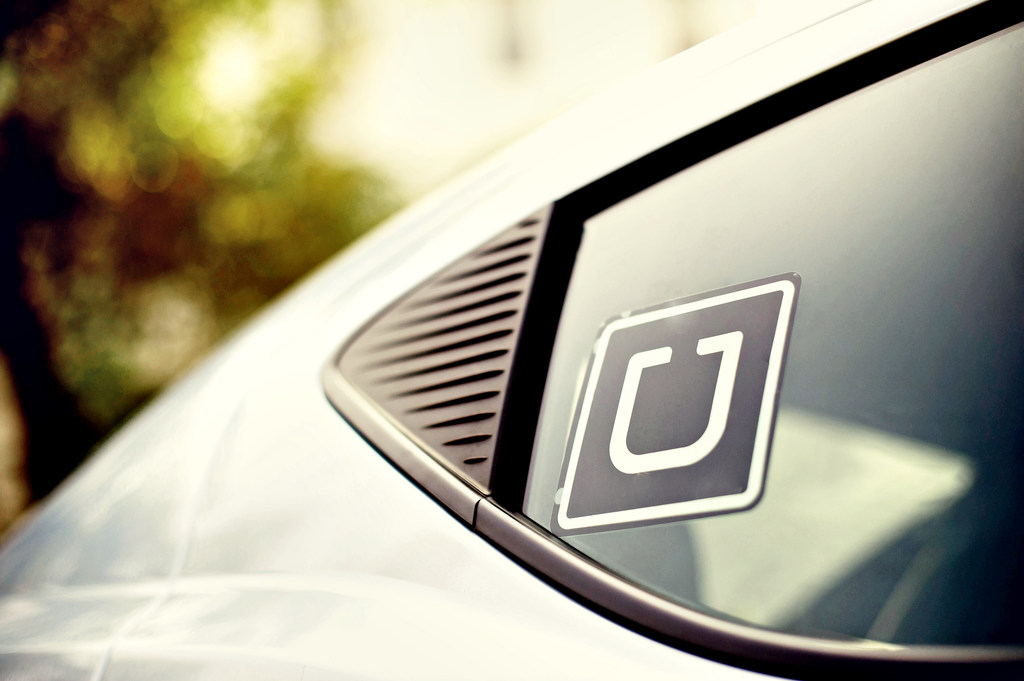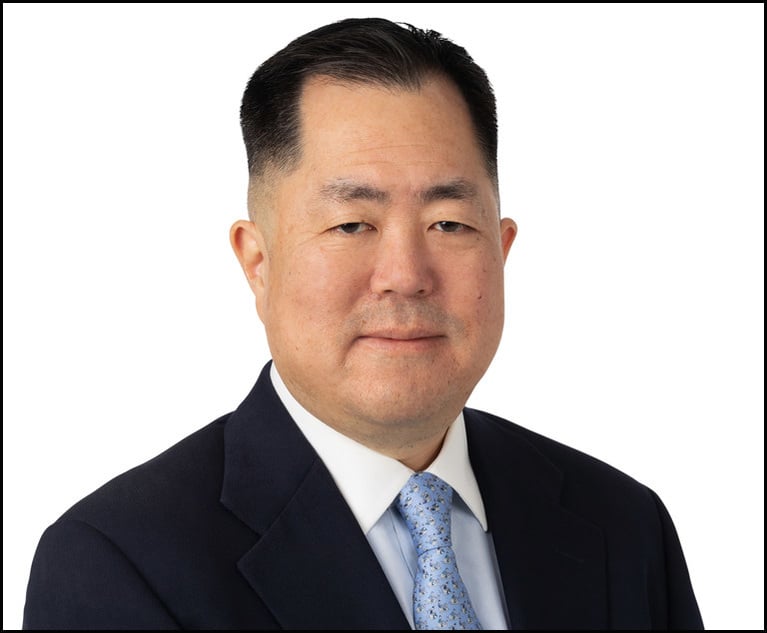Uber Drops Driverless Car Tests in California After Fatal Crash in Arizona
If Uber chooses to restart its testing program in California, "Uber must apply for a new vehicle testing permit," state motor vehicle regulators said.
March 27, 2018 at 05:44 PM
4 minute read
 An Uber car. Credit: Diego M. Radzinschi / ALM
An Uber car. Credit: Diego M. Radzinschi / ALM Following a fatal crash involving one of its autonomous vehicles in Arizona, Uber Technologies Inc. has told California regulators that the company will not renew its permit to test self-driving cars in the Golden State.
Uber's permit, which expires on March 31, covers 29 cars, according to the Department of Motor Vehicles.
Uber voluntarily suspended its testing programs around the country and in Canada after one of its cars operating in autonomous mode struck and killed a woman as she was crossing a Tempe, Arizona, road on the night of March 19.
In a letter sent Tuesday to an Uber executive, the DMV's chief counsel, Brian Soublet, said “Uber has indicated that it will not renew its current permit to test autonomous vehicles in California.”
If Uber chooses to restart its testing program, “Uber must apply for a new vehicle testing permit,” Soublet wrote in a letter first reported in the San Francisco Chronicle. “Any application for a new permit will need to address any follow-up analysis or investigations from the recent crash in Arizona and may also require a meeting with the department.”
An Uber spokesperson said in a statement: “We proactively suspended our self-driving operations, including in California, immediately following the Tempe incident. Given this, we decided to not reapply for a California DMV permit with the understanding that our self-driving vehicles would not operate on public roads in the immediate future.”
Uber has been under intense scrutiny following the fatal crash. The New York Times reported Friday that the self-driving program was not meeting intense company deadlines and expectations for operation targets even before the crash.
On Monday, Arizona Gov. Doug Ducey, who wooed Uber to his state in 2016 with promises of a much less-regulated environment than California, suspended the company from testing its autonomous vehicles in his state, calling the onboard video of the Tempe crash “disturbing and alarming.”
Uber was once one of the biggest testers of autonomous vehicles in California. Recent figures for testing licenses show that companies such as Apple Inc., Tesla Inc. and Waymo Inc. had more test cars on California's roads.
Uber's Tempe crash has raised novel legal questions about who could be held liable for a car driving in autonomous mode. The Glendale, Arizona, firm Bellah Perez has said its lawyers have been retained by the victim's daughter.
“By encouraging businesses like Uber to set up shop in Arizona, the state has hoped to be at the forefront of emerging technology and the sharing economy,” the firm said in a statement on its website. “But the potentially drastic shift in accident liability associated with self-driving technology is causing many professionals to question the legal implications of the industry.”
The firm has not announced any legal action.
Read more:
First Fatal Accident Involving Autonomous Uber Car Raises Novel Legal Issues
Uber Agrees to Pay $10M to Settle Discrimination Class Action
Uber Brings in 'Holder Report' Co-Author as Deputy GC, Angela Padilla Out
Venable Is Now Lobbying for Velodyne, Big Player in 'Lidar' Driverless Tech
Why Uber's Hired a Federal Health Care Lobbyist
Life in the Fast Lane: Companies Navigate Privacy Rules on Self-Driving Cars
This content has been archived. It is available through our partners, LexisNexis® and Bloomberg Law.
To view this content, please continue to their sites.
Not a Lexis Subscriber?
Subscribe Now
Not a Bloomberg Law Subscriber?
Subscribe Now
NOT FOR REPRINT
© 2025 ALM Global, LLC, All Rights Reserved. Request academic re-use from www.copyright.com. All other uses, submit a request to [email protected]. For more information visit Asset & Logo Licensing.
You Might Like
View All
Davis Wright Tremaine Turns to Gen AI to Teach Its Associates Legal Writing
4 minute read
Husch Blackwell Hires Former Adobe Counsel to Oversee AI Advisory Offering
3 minute read
Legal Tech's Predictions for Artificial Intelligence in 2025
Trending Stories
Who Got The Work
J. Brugh Lower of Gibbons has entered an appearance for industrial equipment supplier Devco Corporation in a pending trademark infringement lawsuit. The suit, accusing the defendant of selling knock-off Graco products, was filed Dec. 18 in New Jersey District Court by Rivkin Radler on behalf of Graco Inc. and Graco Minnesota. The case, assigned to U.S. District Judge Zahid N. Quraishi, is 3:24-cv-11294, Graco Inc. et al v. Devco Corporation.
Who Got The Work
Rebecca Maller-Stein and Kent A. Yalowitz of Arnold & Porter Kaye Scholer have entered their appearances for Hanaco Venture Capital and its executives, Lior Prosor and David Frankel, in a pending securities lawsuit. The action, filed on Dec. 24 in New York Southern District Court by Zell, Aron & Co. on behalf of Goldeneye Advisors, accuses the defendants of negligently and fraudulently managing the plaintiff's $1 million investment. The case, assigned to U.S. District Judge Vernon S. Broderick, is 1:24-cv-09918, Goldeneye Advisors, LLC v. Hanaco Venture Capital, Ltd. et al.
Who Got The Work
Attorneys from A&O Shearman has stepped in as defense counsel for Toronto-Dominion Bank and other defendants in a pending securities class action. The suit, filed Dec. 11 in New York Southern District Court by Bleichmar Fonti & Auld, accuses the defendants of concealing the bank's 'pervasive' deficiencies in regards to its compliance with the Bank Secrecy Act and the quality of its anti-money laundering controls. The case, assigned to U.S. District Judge Arun Subramanian, is 1:24-cv-09445, Gonzalez v. The Toronto-Dominion Bank et al.
Who Got The Work
Crown Castle International, a Pennsylvania company providing shared communications infrastructure, has turned to Luke D. Wolf of Gordon Rees Scully Mansukhani to fend off a pending breach-of-contract lawsuit. The court action, filed Nov. 25 in Michigan Eastern District Court by Hooper Hathaway PC on behalf of The Town Residences LLC, accuses Crown Castle of failing to transfer approximately $30,000 in utility payments from T-Mobile in breach of a roof-top lease and assignment agreement. The case, assigned to U.S. District Judge Susan K. Declercq, is 2:24-cv-13131, The Town Residences LLC v. T-Mobile US, Inc. et al.
Who Got The Work
Wilfred P. Coronato and Daniel M. Schwartz of McCarter & English have stepped in as defense counsel to Electrolux Home Products Inc. in a pending product liability lawsuit. The court action, filed Nov. 26 in New York Eastern District Court by Poulos Lopiccolo PC and Nagel Rice LLP on behalf of David Stern, alleges that the defendant's refrigerators’ drawers and shelving repeatedly break and fall apart within months after purchase. The case, assigned to U.S. District Judge Joan M. Azrack, is 2:24-cv-08204, Stern v. Electrolux Home Products, Inc.
Featured Firms
Law Offices of Gary Martin Hays & Associates, P.C.
(470) 294-1674
Law Offices of Mark E. Salomone
(857) 444-6468
Smith & Hassler
(713) 739-1250






